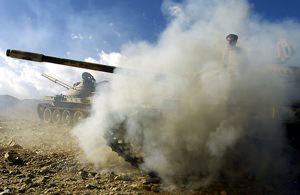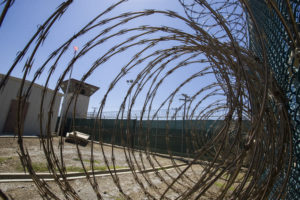How Bin Laden Got Away in 2001
In all the excitement surrounding Osama bin Laden's death almost 10 years after the attacks on the Twin Towers, history reminds us that he was hardly a target for the Bush administration when the U.S. invaded Afghanistan in 2001. (more)
In all the excitement surrounding Osama bin Laden’s death almost 10 years after the attacks on the Twin Towers, history reminds us that he was hardly a target for the Bush administration when the U.S. invaded Afghanistan in 2001.
Bush, Cheney and Rumsfeld rejected an offer by the Taliban to try the world’s most wanted terrorist one month after the World Trade Center attacks and failed to make the military and diplomatic arrangements necessary for his capture in the months that followed. –ARK
Your support matters…Inter Press Service:
The Bush refusal to negotiate with the Taliban was in effect a free pass for bin Laden and his lieutenants, because the Bush administration had no plan of its own for apprehending bin Laden in Afghanistan. It did not even know what level of military effort would have been required for the United States to be able to block bin Laden’s exit routes from Afghanistan into Pakistan.
The absence of any military planning to catch bin Laden was a function of Bush’s national security team, led by Vice-President Dick Cheney and Secretary of Defence Donald Rumsfeld, which had firmly opposed any military operation in Afghanistan that would have had any possibility of catching bin Laden and his lieutenants.
… Cheney and Rumsfeld were determined not to allow a focus on bin Laden to interfere with their plan for a U.S. invasion of Iraq to overthrow the Saddam Hussein regime.
Even after Bush decided in favour of an Afghan campaign, CENTCOM commander Tommy Franks, who was responsible for the war in Afghanistan, was not directed to have a plan for bin Laden’s capture or to block his escape to Pakistan.
When the CIA received intelligence on Nov. 12, 2001 that bin Laden had left Kandahar and was headed for a cave complex in the Tora Bora Mountains close to the Pakistani border, Franks had no assets in place to do anything about it. He asked Lt. Gen. Paul T. Mikolashek, commander of Army Central Command (ARCENT), if he could provide a blocking force between al Qaeda and the Pakistani border, according to Col. David W. Lamm, who was then commander of ARCENT Kuwait.
But that was impossible, because ARCENT had neither the troops nor the strategic lift in Kuwait required to put such a force in place.
Franks then had to ask for Pakistani military help in blocking bin Laden’s exit into Pakistan, as Rumsfeld told a National Security Council meeting, according to the meeting transcript in Bob Woodward’s book “Bush at War”.
But Rumsfeld and other key advisers knew it would a charade, because bin Laden was a long-time ally of the Pakistani intelligence service, the ISI, and the Pakistani military was not about to help capture him.
Independent journalism is under threat and overshadowed by heavily funded mainstream media.
You can help level the playing field. Become a member.
Your tax-deductible contribution keeps us digging beneath the headlines to give you thought-provoking, investigative reporting and analysis that unearths what's really happening- without compromise.
Give today to support our courageous, independent journalists.






You need to be a supporter to comment.
There are currently no responses to this article.
Be the first to respond.